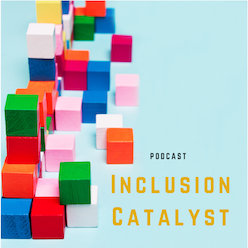Hanna Mason, Host of the Woke Wednesdays podcast, joins us to talk about her show and the state of social justice and politics in America. We discuss:
- How she got started podcasting
- Her presentation on How to Evoke Change at the Advertising for Change event in Atlanta
- Are we in the most divisive time in American history?
- The state of progressive voices and politcs in the US
- Under-represented voices that need to be amplified, such as black trans women
- 2020 Democratic candidates
- Hannah’s plan to become Secretary of Education
Links:
Woke Wednesdays podcast – https://podcasts.apple.com/us/podcast/woke-wednesdays/id1443999786
Advertising for Change – https://advertisingforchange.org/
Support Inclusion Catalyst by contributing to their Tip Jar: https://tips.pinecast.com/jar/inclusion-catalyst

